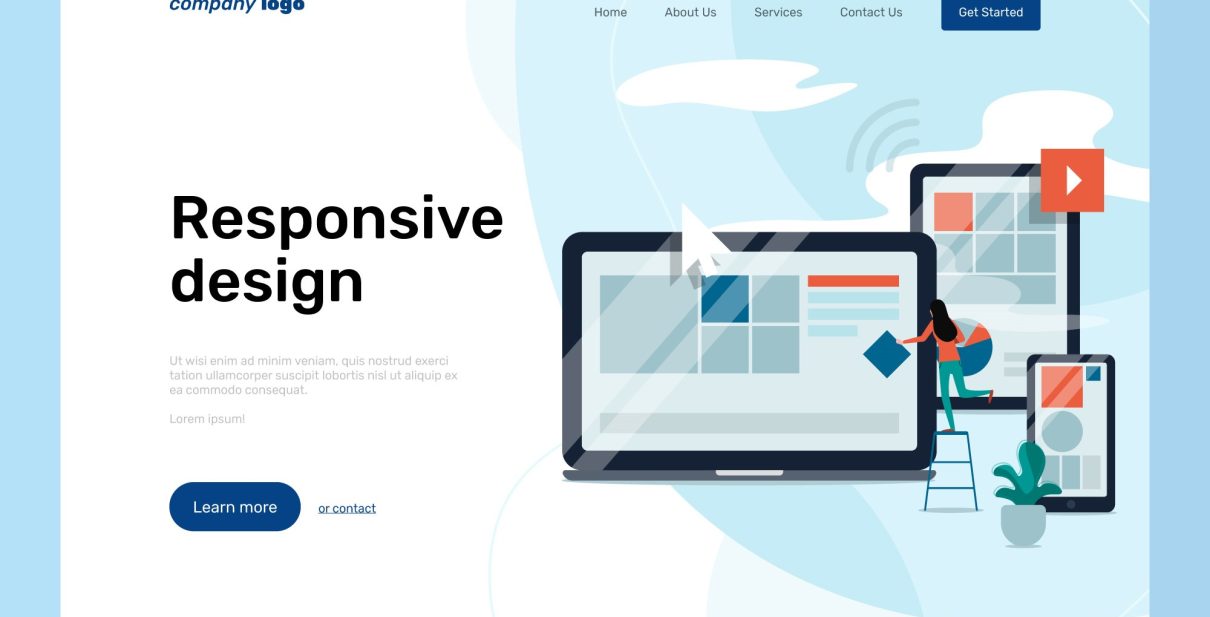- January 7, 2024
- by admin
- Website Development
Responsive web design offers several advantages for businesses, contributing to an enhanced online presence and user experience across various devices. Here are some key advantages:
Multi-Device Compatibility: Responsive design ensures that your website adapts seamlessly to various screen sizes and devices, including desktops, laptops, tablets, and smartphones. This broad compatibility increases the reach of your website and accommodates users regardless of the device they are using.
Improved User Experience: Responsive websites provide a consistent and optimized user experience across different devices. Visitors can navigate your site easily, read content, and interact with features without encountering issues related to inconsistent formatting or functionality.
Cost-Effective: Developing a responsive website is often more cost-effective than creating separate versions for different devices. Maintaining a single site reduces development and maintenance costs compared to managing multiple versions of a website.
SEO Benefits: Search engines, like Google, favor responsive websites. Having a single URL for your content makes it easier for search engines to crawl and index your site. Additionally, responsive design helps to avoid duplicate content issues that can arise with separate mobile sites.
Faster Page Loading: Responsive websites are designed to be lightweight and optimized for quick loading times. This is crucial for retaining visitors, as slow-loading pages can lead to high bounce rates. Faster loading times also contribute positively to search engine rankings.
Easy Maintenance: Managing and updating a single responsive website is more efficient than maintaining multiple versions. Content updates, design changes, and bug fixes can be implemented universally, ensuring consistency across all devices.
Increased Conversion Rates: A responsive design can lead to higher conversion rates as users are more likely to engage with a site that provides a seamless experience. Whether making a purchase, filling out a form, or simply browsing, users are more likely to take action if the process is user-friendly.
Social Media Integration: With the increasing use of social media on various devices, a responsive design ensures that your website is easily shareable and accessible through social media platforms. This can help in increasing your online visibility and reach.
Future-Proofing: As new devices and screen sizes emerge, a responsive design helps future-proof your website. Instead of having to redesign and rebuild for each new device, a responsive site can adapt to changes in technology more easily.
Brand Consistency: Responsive design ensures that your brand image and messaging remain consistent across all devices. Consistency is crucial for brand recognition and user trust.
A responsive website is like a good employee – it works tirelessly, adapts to any situation, and always puts the customer first.




3 Comments